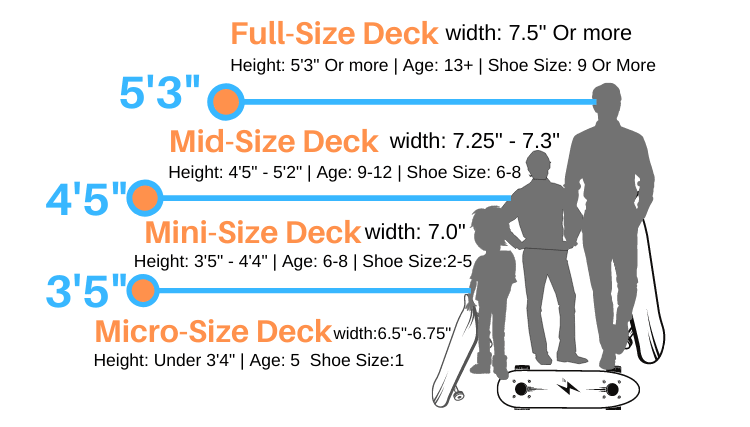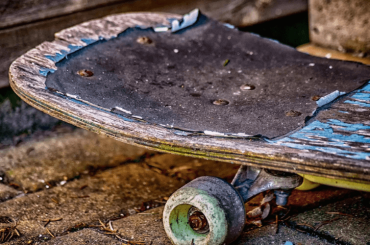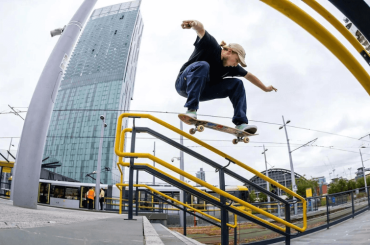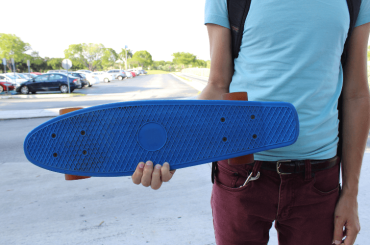In the world of extreme sports skateboarding is one of the most popular. People of all ages enjoy cruising around on their boards. But how much weight can a skateboard hold? And what are some other things you need to know before trying this activity?
There’s no telling how much weight a skateboard can hold. Some boards are designed to support more weight than others but it ultimately depends on the construction and materials of the board itself.
A heavy person can probably skate on a regular board but if they want to do tricks or participate in competitions they’ll need a board that is built to handle more weight.
Skaters who are overweight or obese should be especially careful about the type of board they use as too much weight could cause the board to bend or break.
Finding the right skateboard is crucial for anyone who wants to stay safe while skating.
Skateboard Weight Holding Limit
There is no definitive answer to this question since skateboards can vary so much in terms of size and construction. Some boards may be able to hold more weight than others but it ultimately depends on the specific board.
It is important for anyone who is overweight or obese to find a board that can support their weight as using a board that is not meant to hold a lot of weight could lead to injuries.
Skateboard Weight Chart

Which Factors Affect How Much Skateboard can hold?
There are a few factors that can affect how much weight a skateboard can hold. These include the size of the board, the material it is made from and the amount of weight it is designed to support.
- The size of the board is one of the most important factors. A larger board will be able to support more weight than a smaller one. A board made from sturdy materials will be able to support more weight than one made from less sturdy materials.
- The amount of weight the board is designed to support is another important factor. Some boards are designed to support up to 250 pounds while others may only be able to support up to 150 pounds.
When choosing a skateboard it is important to consider how much weight it can hold. Larger boards made from sturdy materials are usually able to support more weight but it is still important to check the weight limit before purchasing a board.
Why is it Important to Know How Much Weight a Skateboard Can Hold?
It is important to know how much weight a skateboard can hold because this information can help you choose the right board for your needs. If you are overweight or obese it is important to find a board that can support your weight.
Using a board that is not meant to hold a lot of weight could lead to injuries. When choosing a skateboard it is important to consider the size of the board, the material it is made from and the amount of weight it is designed to support.
Checking the weight limit before purchasing a board can help you make sure that you choose the right skateboard for your needs.
Some Things You Need to Know Before Skating
Before skating, it is important to make sure that you have the proper safety gear. This includes a helmet, knee pads, elbow pads, and wrist guards. It is also important to choose the right location to skate. Skate parks are usually a good option as they are designed for skateboarding.
Skating in traffic is dangerous and should be avoided. When skating always be aware of your surroundings and be prepared to stop or jump out of the way if necessary.
Skateboarding is a fun and rewarding activity but it is important to take safety precautions before hitting the streets or the skate park. Wearing the proper gear and choosing the right location are both keys to having a safe and enjoyable experience.
FAQs – Skateboard Weight Limit
How Can you Tell if your Skateboard is Overloaded?
If your skateboard is overloaded, you may notice that it is difficult to control. The board may also make creaking or popping sounds. If you suspect that your board is overloaded it is important to stop skating and check the weight limit.
Checking the weight limit of your skateboard before skating can help you avoid injuries.
What Should You do if Your Skateboard Breaks Under Your Weight?
If your skateboard breaks under your weight you should stop skating immediately and check the weight limit. It is also important to inspect the board for damage. If there are any cracks or breaks in the board it should be replaced.
In some cases, overloaded skateboards can be repaired. However, it is important to consult with a professional before attempting to repair a damaged board.
Is Any Dangers of Overloading a Skateboard?
Overloading a skateboard can be dangerous because it can cause the board to break or bend. This can lead to injuries for the person skating, as well as anyone who is near the board when it breaks. Overloading a skateboard can also damage the wheels and bearings.
Can a fat person ride a skateboard?
Yes, a fat person can ride a skateboard. However, it is important to choose a board that can support your weight.
How much force does it take to break a skateboard?
The amount of force it takes to break a skateboard depends on the material the board is made from and the weight limit. It is possible to break a skateboard by exceeding the weight limit or by using too much force.
Final Words
Skateboarding is a great way to get around, have fun and stay in shape. But how much weight can a skateboard hold?
We tested the weight limits of three different skateboards by loading them up with weights until they broke. The first board held 110 pounds without breaking, the second only held 80 pounds before it snapped and the third could handle a whopping 200 pounds!
If you’re looking for a sturdy skateboard that can hold more weight be sure to go for one with at least seven plies of wood. You don’t want your board snapping on you while you’re trying to do some kickflips!
A skateboard can hold quite a bit of weight if it’s made well. Be safe and have fun out there!





